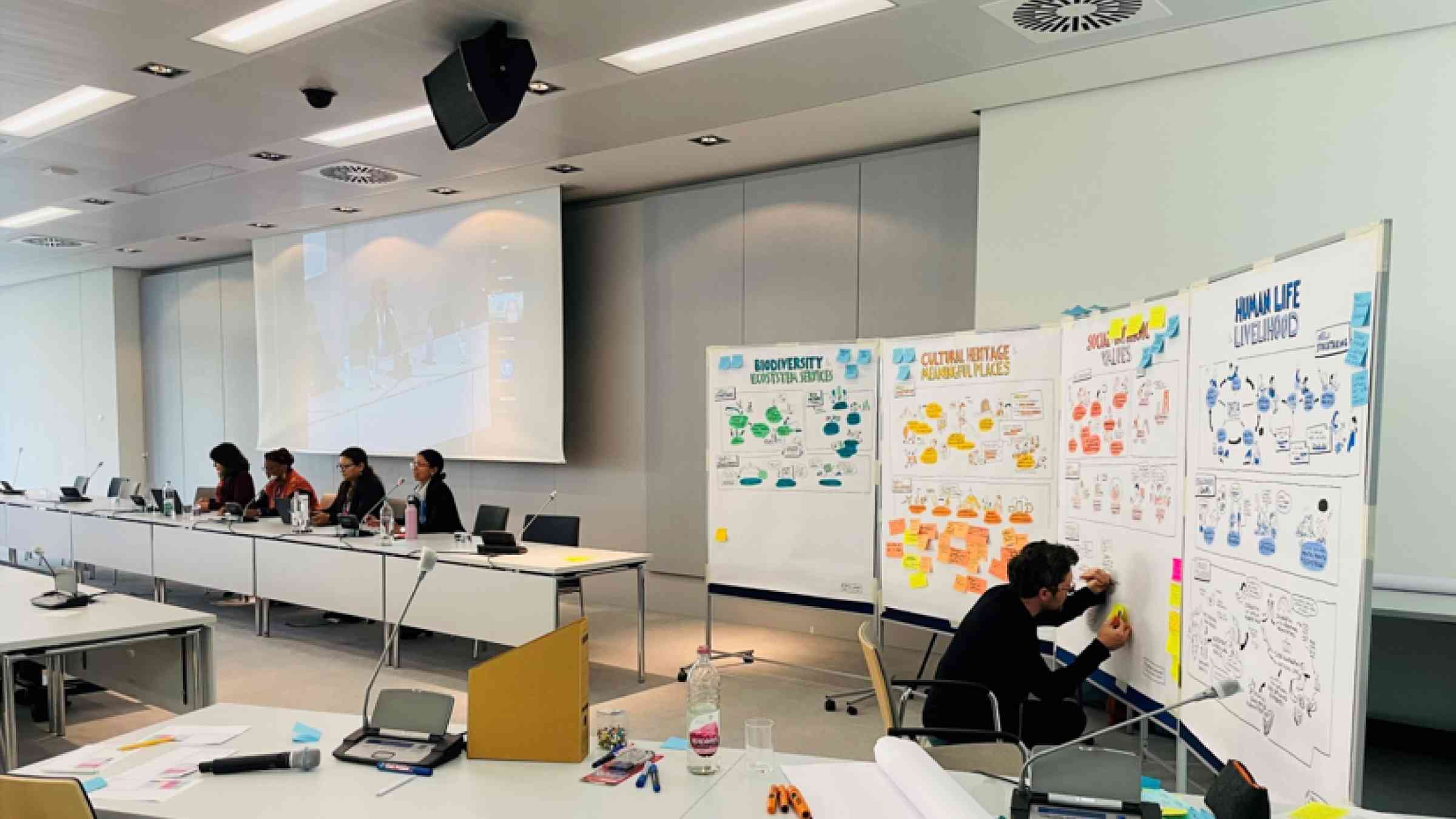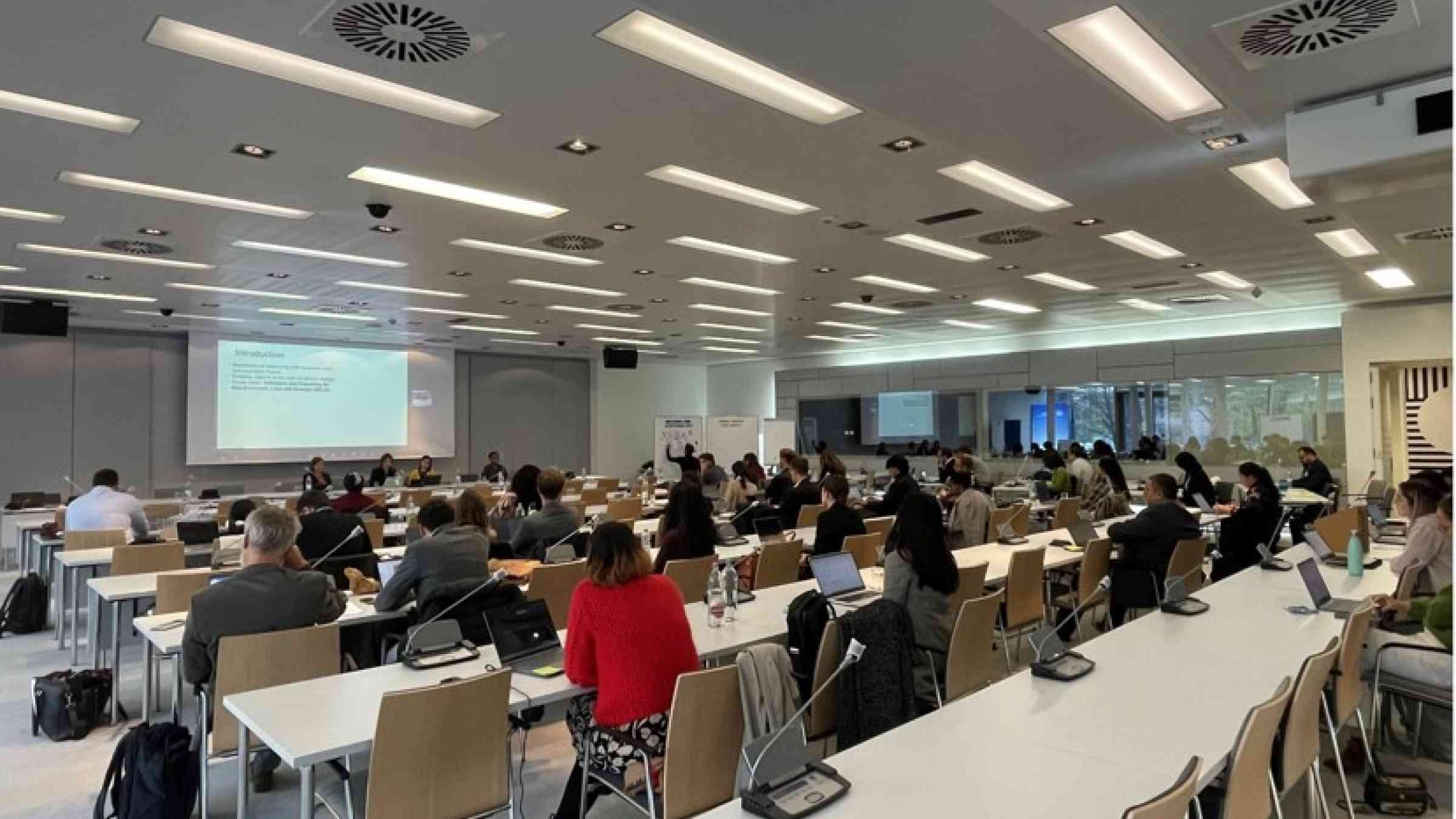
Bonn, 24 October 2024, Close to 100 experts actively participated in and contributed to the 2024 Bonn Technical Forum, organized on 22-23 October 2024 held in Bonn, Germany, about half of whom were present in person. The Bonn Technical Forum is a key expert forum, hosted by the UNDRR Office in Bonn, that selects a topic of importance every year and convenes relevant experts to deep dive. The 2024 Forum focused on non-economic losses (NELs).
As with previous years (see deliberations and outputs of the Bonn Technical Forums in 2022 and 2023), the expert forum aimed at enhancing the next-generation disaster tracking system for hazardous events and losses and damages, being co-led by UNDRR with UNDP and WMO, and organized in collaboration with the United Nations University - Institute for Environment and Human Security (UNU-EHS).
Experts acknowledged the data gaps prevalent in understanding and assessing NELs - the intangible aspects of disaster impacts and losses and damages, and not generally expressed in monetary terms. Various use cases of such data were discussed as a starting point, ranging from developing informed plans and policies and better preparedness, to access to financing, and reporting. Following this, experts deep-dived into data availability and gaps, and metrics and methods that would systematically help collect and utilize such data.
Opening the workshop, Stella Brozek-Everaert, a member of the Executive Committee of the Warsaw International Mechanism and its Expert Group on Non-Economic Losses, said: "considering broader policy needs that emerge with the evolving landscape on support for loss and damage, information on the context of NELs and responses is more relevant and needed." Furthermore, she highlighted that the outcome from this forum could inform the work by the ExCom and its expert groups and task force on preparing voluntary guidance for countries Biennial Transparency Reports.
The expert forum was preceded by a curtain-raiser webinar organized on 7 October 2024 where selected experts discussed different approaches to capturing data on non-economic losses, and agreed on a working analytical framework that follows a value-based approach at the core of such data. This framework, put together by Kees van der Geest at UNU-EHS, structured around human life and livelihoods, social and intrinsic values, biodiversity and ecosystem services, and cultural heritage and meaningful places, was used as the basis for discussing data availability and gaps at the workshop.
Several sources of data, both available directly through official reporting processes, or those available through proxy variables were discussed. Mapping of relevant data to the Sustainable Development Goals (SDG) and Sendai Framework monitoring and reporting systems was also presented. Participants pointed that established assessment methodologies and tools, e.g. post-disaster needs assessments, displacement trackers, rural livelihood surveys, disability-adjusted life year (DALY), etc. provide some relevant data. Several participating organizations highlighted data they hold which are relevant to NELs.
Experts highlighted data gaps and challenges in collecting such data. However, there was a unanimous agreement that "we don't need to reinvent the wheel but collect 'good enough' data to inform and trigger action."
Gideon Sanago, representing Indigenous Peoples Organizations on the Santiago Network Advisory Board, said "Indigenous people are at the front line of climate change. Beyond being affected, indigenous people have also developed their own instruments for data collection and knowledge, such as Indigenous navigator, a global tool with data by and for Indigenous people that enable the realization of their rights. To make decision-making on loss and damage more inclusive, research and policies should incorporate and apply indigenous people knowledge. Key to revitalize their knowledge system is to enable preservation of indigenous languages to allow intergenerational knowledge transmission."
Participating experts agreed on a multipronged approach to ensure that data on non-economic losses can be systematically collected and analysed across use cases. While collating data from published sources, including through harnessing globally agreed metrics, recognizing the interlinkages of economic and non-economic dimensions, efforts should be enhanced to collect NEL-related impact as part of post-event assessments and monitoring while also capturing NEL-related aspects of economic losses as being recorded. Existing assessment methods should be enhanced to include NELs, while human rights-based approaches and gender analysis lenses should be made an integral part of all NEL-related assessments. Tools should also be developed to account for NELs due to slow-onset events, thus echoing some of the outcomes of the previous forum.

Gender expert Asha Kambon in her intervention on experiences and lessons learned from Post-Disaster Need Assessments (PDNA) human impact analysis highlighted the importance to quantify (different from valuating) effects and identify duration and people affected (persons with disability, indigenous populations, etc.) to be able to speak to their severity, understand who has incurred the loss and design actions to prevent or address the consequences of NELs. "NEL values which are accurate and comparable require internal and external benchmarking to come later, and just valuation should be based on the globally agreed SDGs" she highlighted.
As a way forward, Animesh Kumar, the head of UNDRR Office in Bonn, outlined some key next steps: (i) document use cases of NEL data, (ii) enhance understanding of NELs through documenting typologies, (iii) develop shared principles on NEL data collection, management, and use (iv) enhance capacities of countries and all stakeholders in systematically collecting NEL data and apply it in decision-making. While committing that NELs will be a key component of the forthcoming enhanced disaster tracking system, he also exhorted all organizations to ensure inclusion of NEL variables into current assessments, as well as SDG and related custodian organizations to ensure NEL inclusion in official reporting processes.
All workshop presentations and other resources